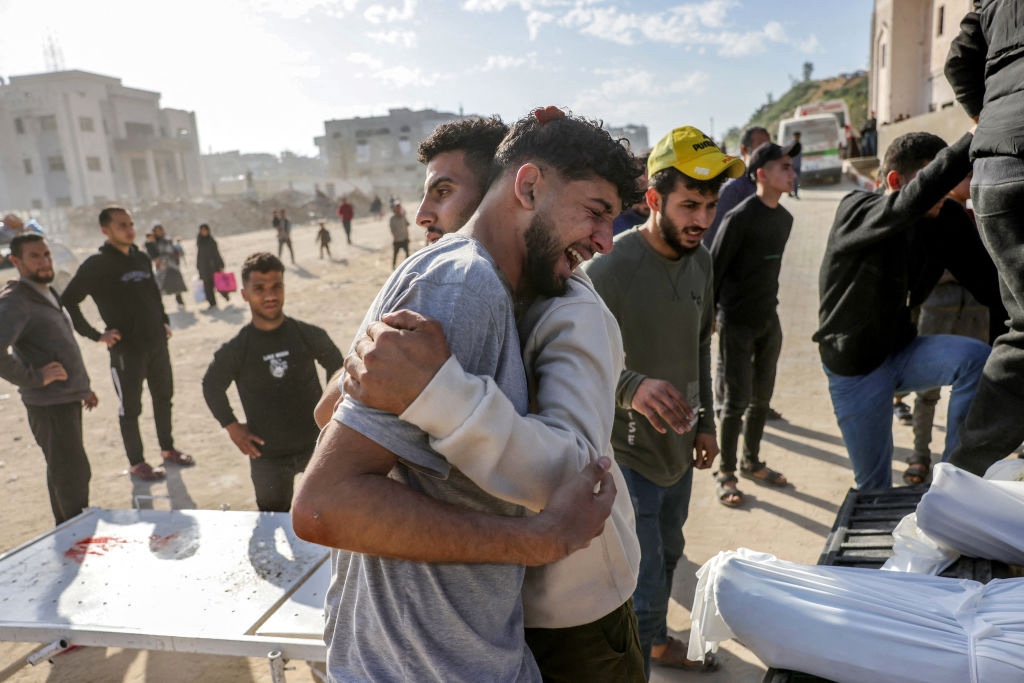In Tuesday’s early morning hours, as Palestinians in Gaza were preparing for another day of fasting for the Muslim holiday of Ramadan, Israeli forces pounded the besieged Strip with a massive surprise-attack barrage of air strikes, killing over 450 people, most of them women and children.
It was a brutal act of wanton killing. In the span of hours, entire Palestinian families were wiped out and buried in the rubble of their homes. Children and women were burned alive and murdered in their sleep. Survivors include a month-old girl, who was pulled from the rubble after the air strike killed her parents and brother.
Among the victims were the family of Nasreen Abdu, who was killed alongside her husband and three children when their family home was bombed in Gaza City. She was the sister of prominent Palestinian legal advocate Rami Abdu, who serves as the chairman of the Euro-Mediterranean Human Rights Monitor, which documents war crimes in Gaza, and who lamented the tragedy with astonishing resilience.
The Israeli onslaught targeted various areas across the Gaza Strip, from north to south, including Jabalia, Beit Hanoon, Gaza City, Nuseirat, Deir el-Balah, Khan Younis, Rafah, and al-Mawasi, which had been designated as a safe humanitarian zone for displaced Palestinians. Targets included two schools where hundreds of displaced families were taking shelter — al-Tabin School in Daraj, Gaza City, and Dar al-Fadhila School northwest of Rafah City.
Since Tuesday, Israeli forces have killed over six hundred Palestinians, while wounding more than ten thousand others, including at least 110 Palestinians killed on Thursday.
The horrific massacre was among the deadliest days of Israel’s eighteen-month-long genocide in Gaza, and one of the deadliest days for children in Gazan history. It took place during Ramadan and amid Israel’s total blockade of food, water, energy, and electricity into the besieged Strip. Palestinians describe the massacre…
Auteur: Seraj Assi

